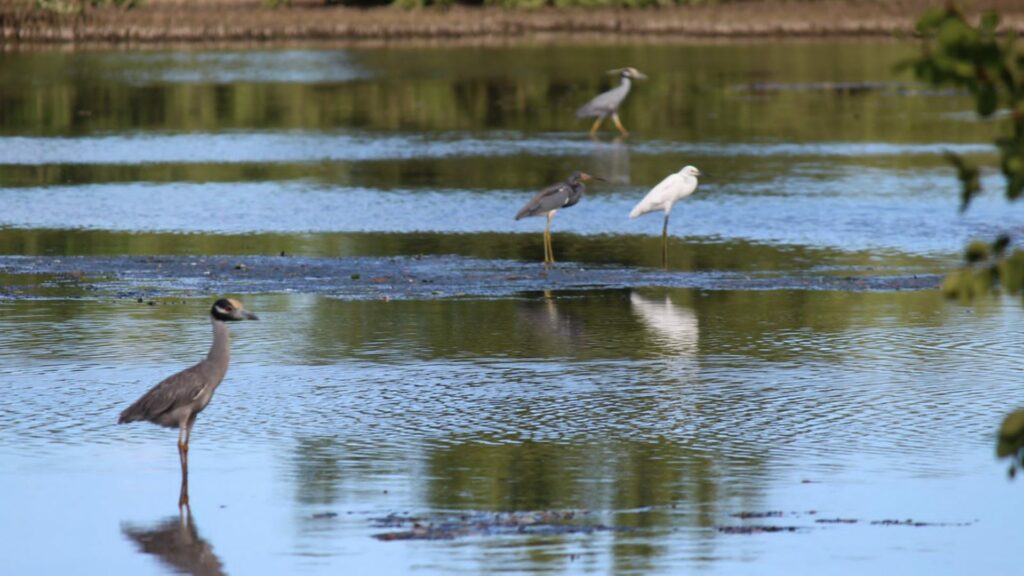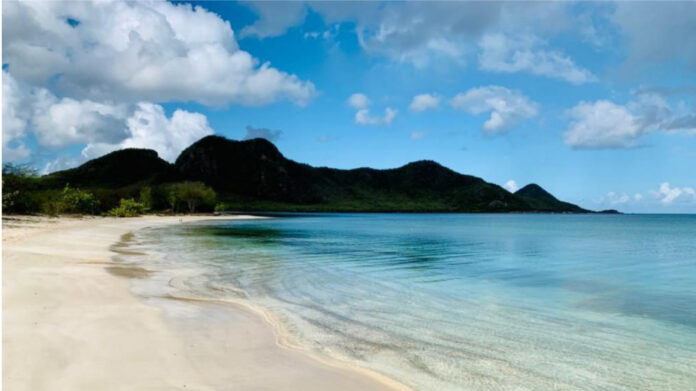By Carlena Knight
Work at the country’s second special economic zone remains at a standstill more than a year after developers were told to stop work pending environmental assessments.
This was confirmed by Cabinet spokesperson Information Minister Melford Nicholas during this week’s post -Cabinet press briefing.
The Western Imperial Special Economic Zone (WISEZ) – which was tipped to feature luxury homes, a seven-star resort, and manufacturing and retail districts – was announced in 2021, alarming environmentalists who protested the potential impact on the ecologically sensitive area near Jennings and Seaforth Beach.
The site had already seen some work undertaken, including land clearing for roads, before things came to a halt in January last year.
“The halt has come as a result of the early work that they have done and the DCA and Department of Environment had made that intervention,” Minister Nicholas said.
“I don’t believe that the developers of that facility have cleared those hurdles yet, so until they have cleared the approval process at that level, there will be no further development in that area until that has been completed.”
The lands designated to WISEZ include 245 acres in Jennings and 410 acres in Five Islands which make up a total of 549 acres in Antigua and Barbuda.
Last year, one of the main investors Vijender Singh held discussions with local residents concerned by the scale of the development but little has been heard about it since.
Spearheading those talks was activist Raul Samuel who was vocal in raising awareness of the unique location, the importance of the flora and fauna found there, and what the nation stands to lose should the project proceed.
Samuel told Observer yesterday he was not surprised at the lack of progress.
“I think it was too big, ridiculously large and the nature of the development versus the terrain down there did not match. All those hills and the type of development they were doing, they would have to flatten all of those hills,” he said.
The halt, he added, has been beneficial for the area as vegetation has started to grow back.
“At the moment, the entire area is still pretty much as it was. Those trees are now regrowing, cattle are back in there so, from where I stand, I can’t say I am unhappy about it,” he explained.
Samuel did however urge officials to learn from past mistakes and factor in the environmental impact on the area should work recommence there.
“I hope that when they do develop the area in the future that they will take into consideration the action that I took and the issues which surround the actual environment in a sustainable manner so that we can have a balance between the development and conservation, and not go in there and bulldoze the hills and try to make the mangroves into a marina which is the plan that I saw which sprung me into action,” Samuel added.

Nicholas also spoke about the other special economic zone, dubbed the Yida development, in Antigua’s north-east.
He explained that the developer Yida Zhang has also “hit a halt in the road” but that Cabinet is still pushing for development to take place on uninhabited Guiana Island.
The group owns Guiana Island, Crump Island and surrounding areas, a total of more than 1,600 acres of pristine, peninsula lands after signing a memorandum of understanding with the Chinese principals in 2014.
“We would have seen the start of that development and I think where he has a hit a little vortex or a little halt in the road is being able to attract the type of industry that he wants to be able to do that,” Nicholas said.
“I believe within the context of what we would like to see is for some of those resources, some of those lands, there is Guiana Island and it lends itself to further development of our tourism sector.
“Should he not be able to achieve his vision in short order then perhaps maybe there could be an opportunity for the government to be able to introduce him to some other private sector partners who may jointly seek to develop some of these resources.
“I think that is still something that some benefits can be achieved by pursuing economic development in that particular zone,” Nicholas explained.
Zhang previously promised to spend US$2 billion over a 10-year period to develop the largest free trade zone in the country, an off-shore financial centre, five-star luxury resort, internationally branded villa communities, a casino and gaming complex, multi-purpose conference centre, 27-hole golf course, marina and landing facilities, commercial, retail, sports and other auxiliary facilities.
Representatives from Hard Rock International were also on hand and were expected to be responsible for the first project that Yida had hoped to start in 2016 which included plans for a hotel, casino, cafe and water park.
But that did not materialise.
In addition to environmental concerns – with the development encroaching on a protected marine reserve – the development has also been at the centre of a legal battle with local real estate agency Luxury Locations over unpaid fees.
Earlier this month, the Privy Council ruled in favour of Luxury Locations stating that both the High Court and the Court of Appeal had been wrong to uphold Yida’s argument that he was entitled to escape from a March 2017 court order to pay the company their fee for negotiating his US$60 million purchase of the site and assisting with structuring a concessions package.

